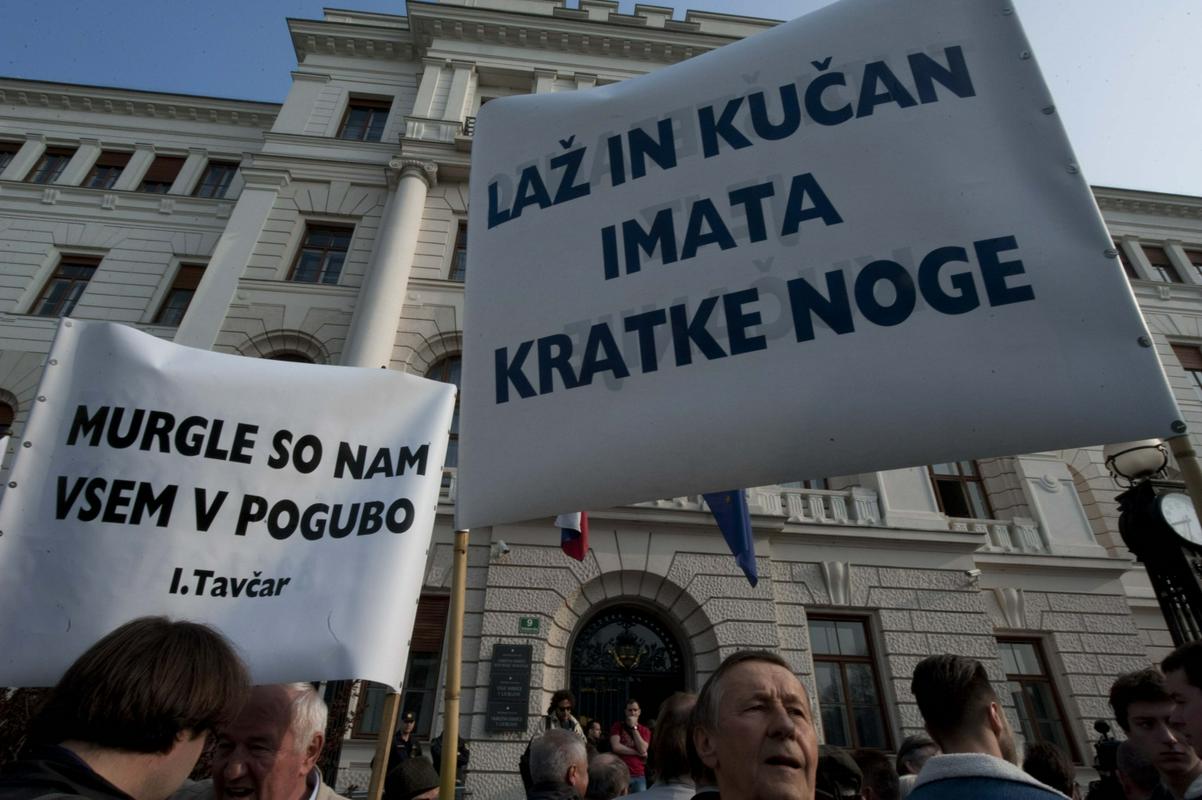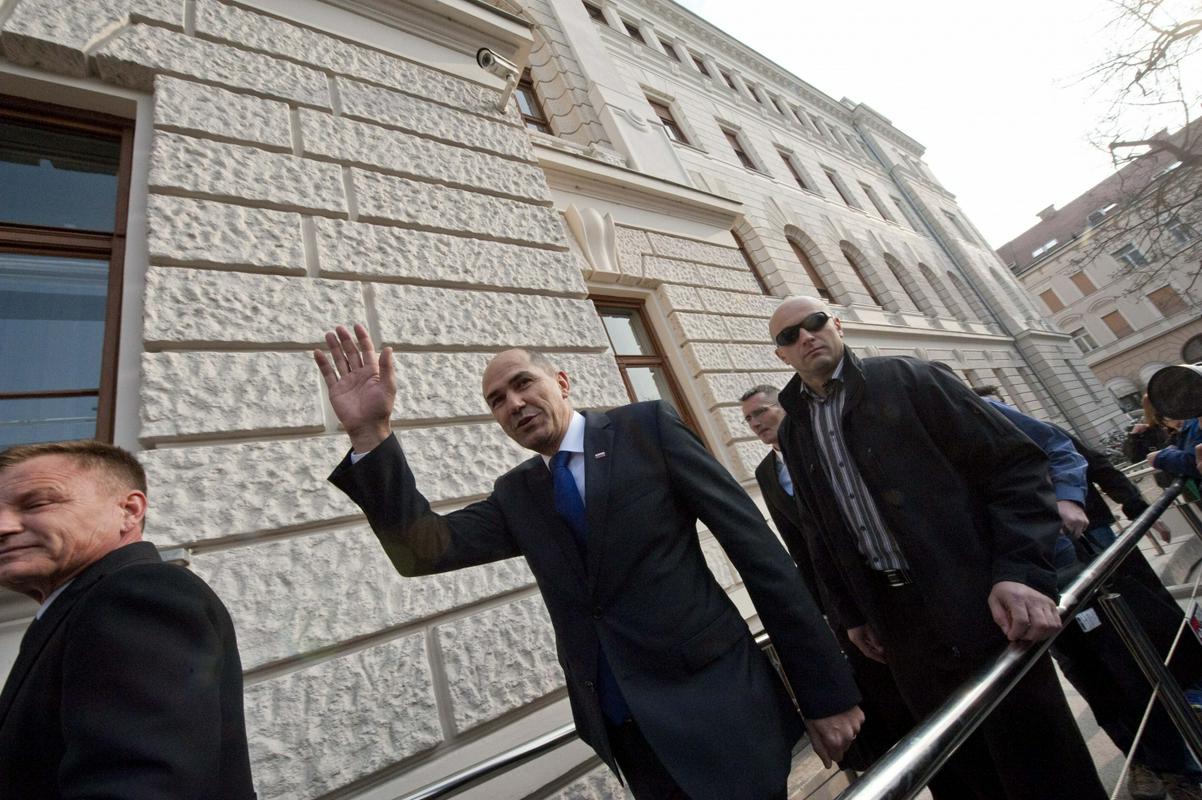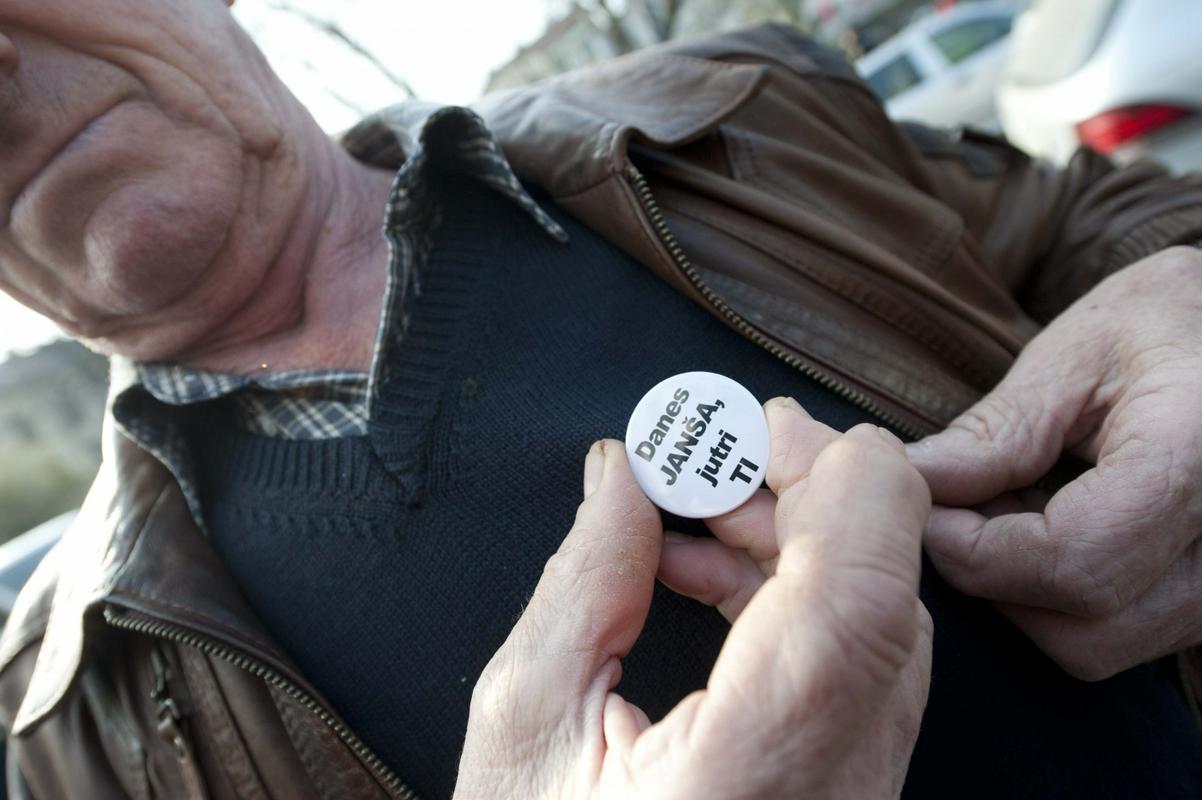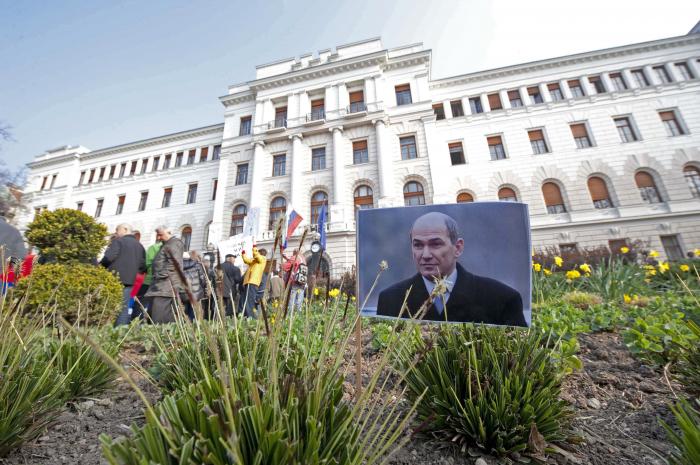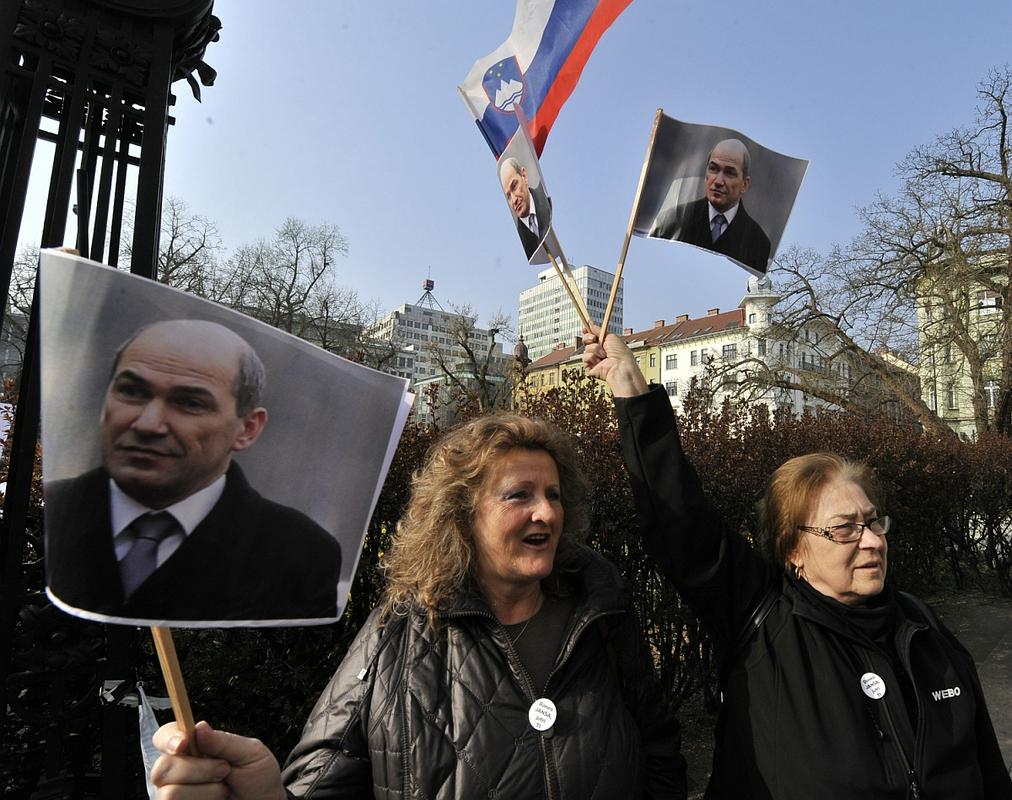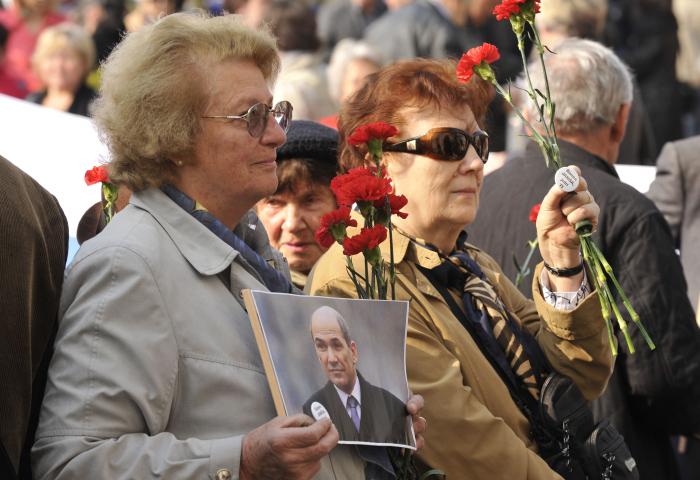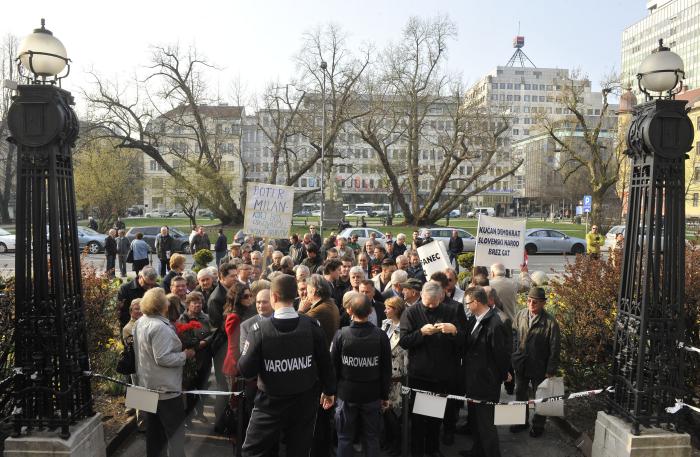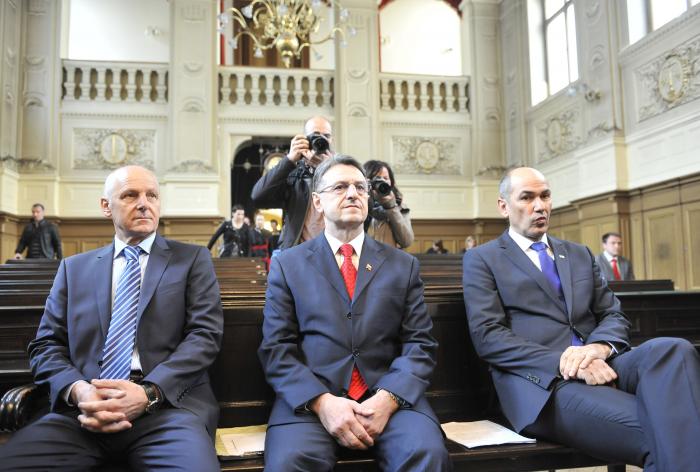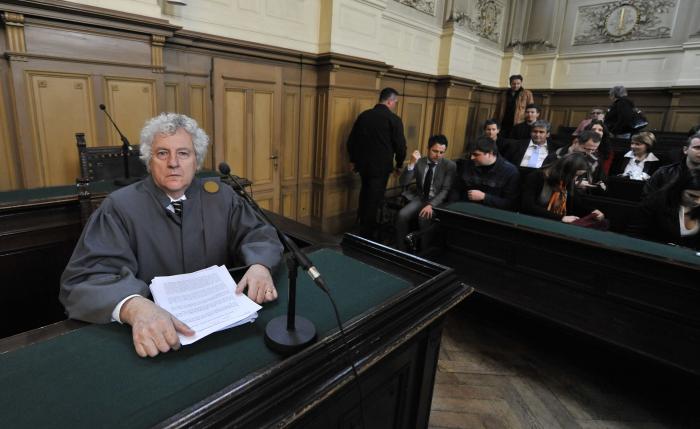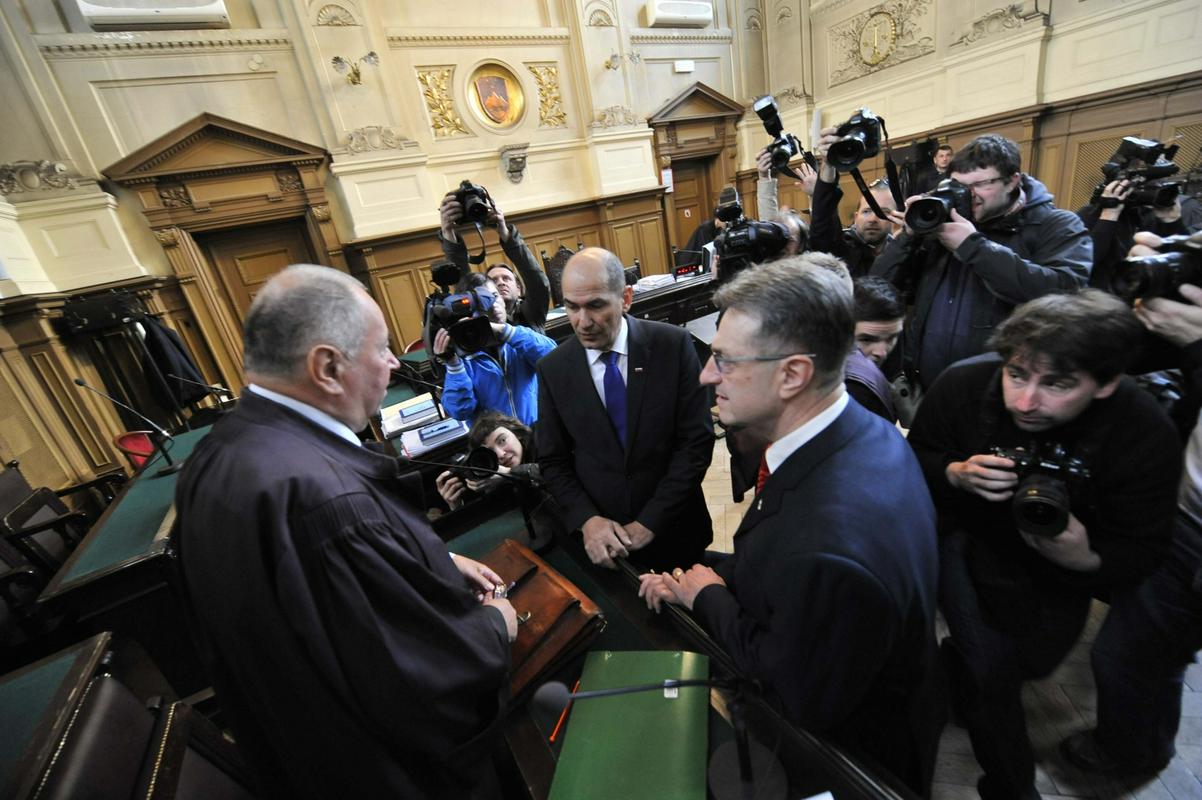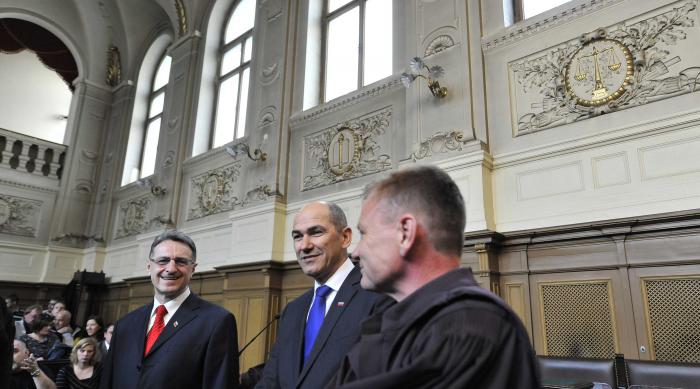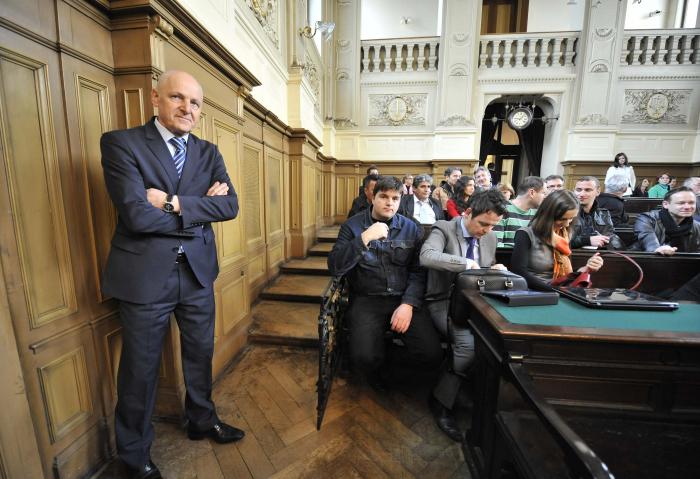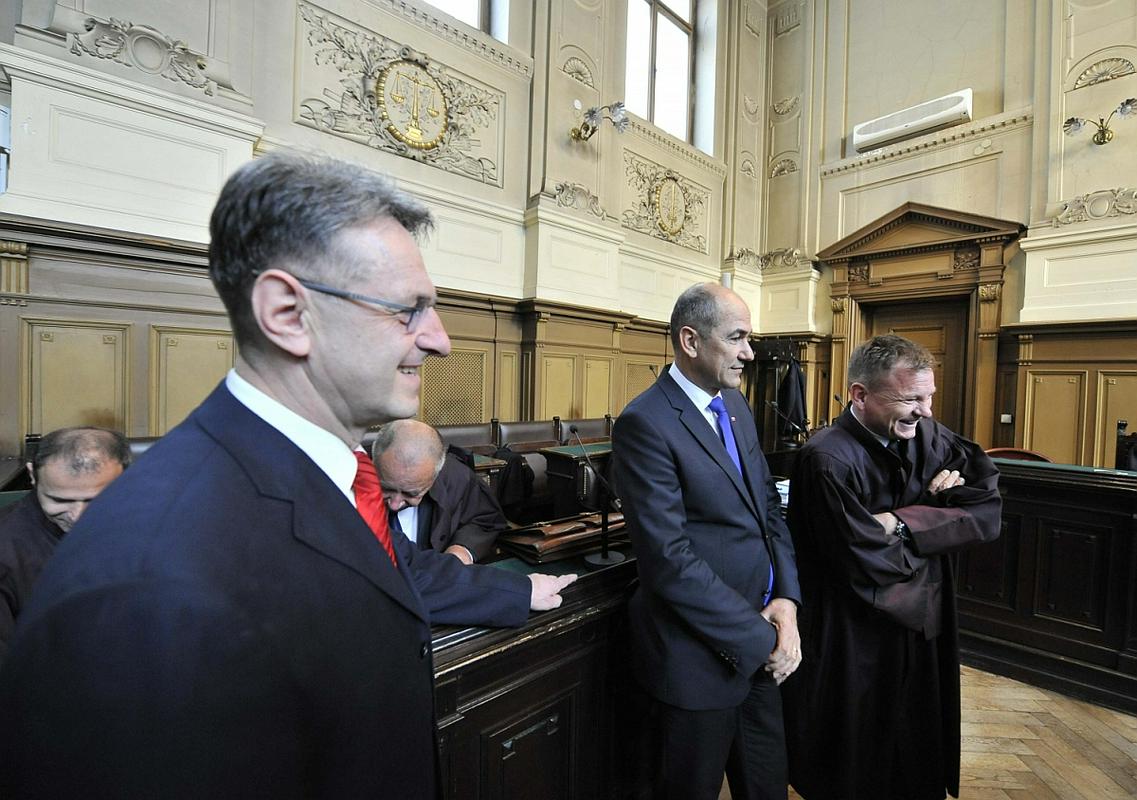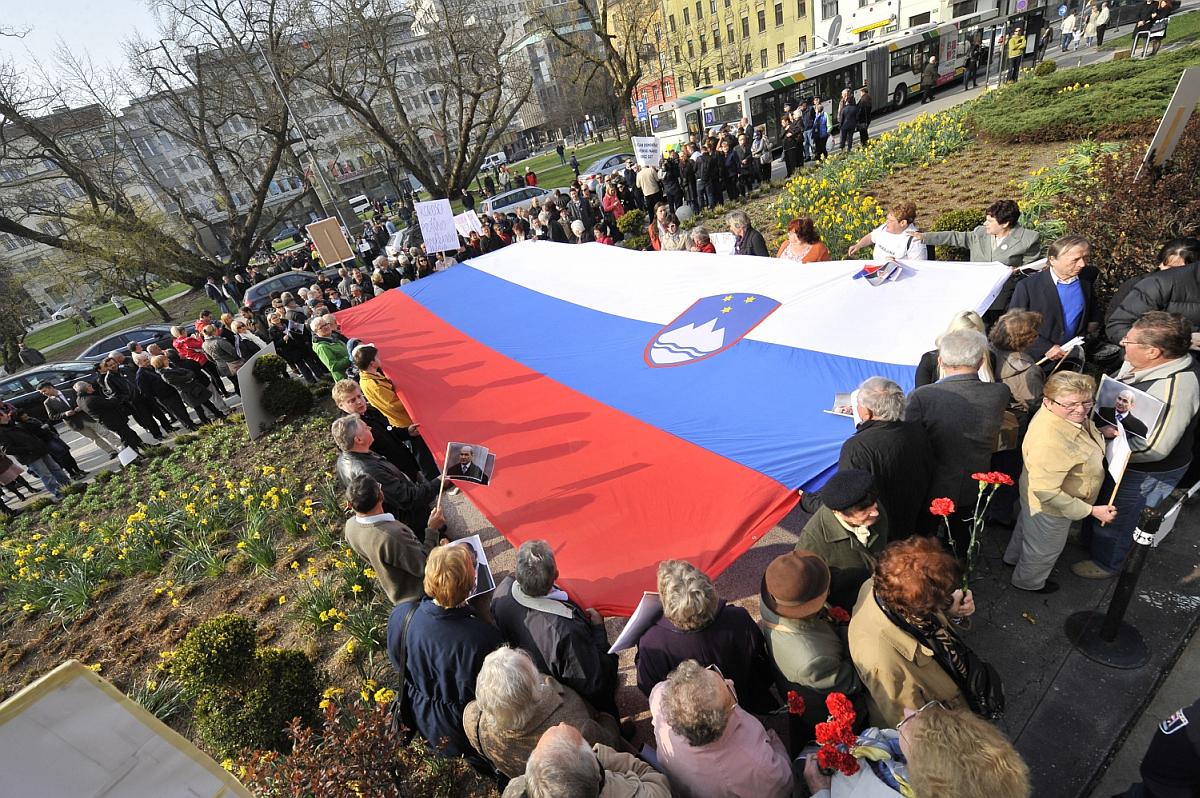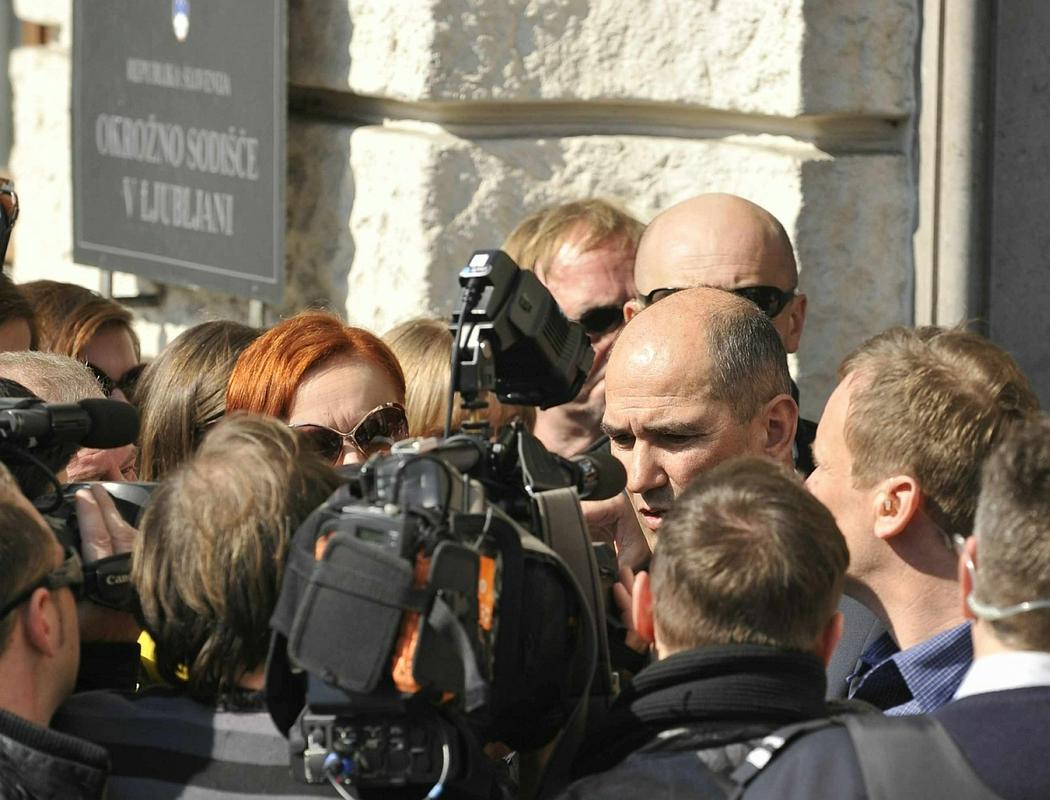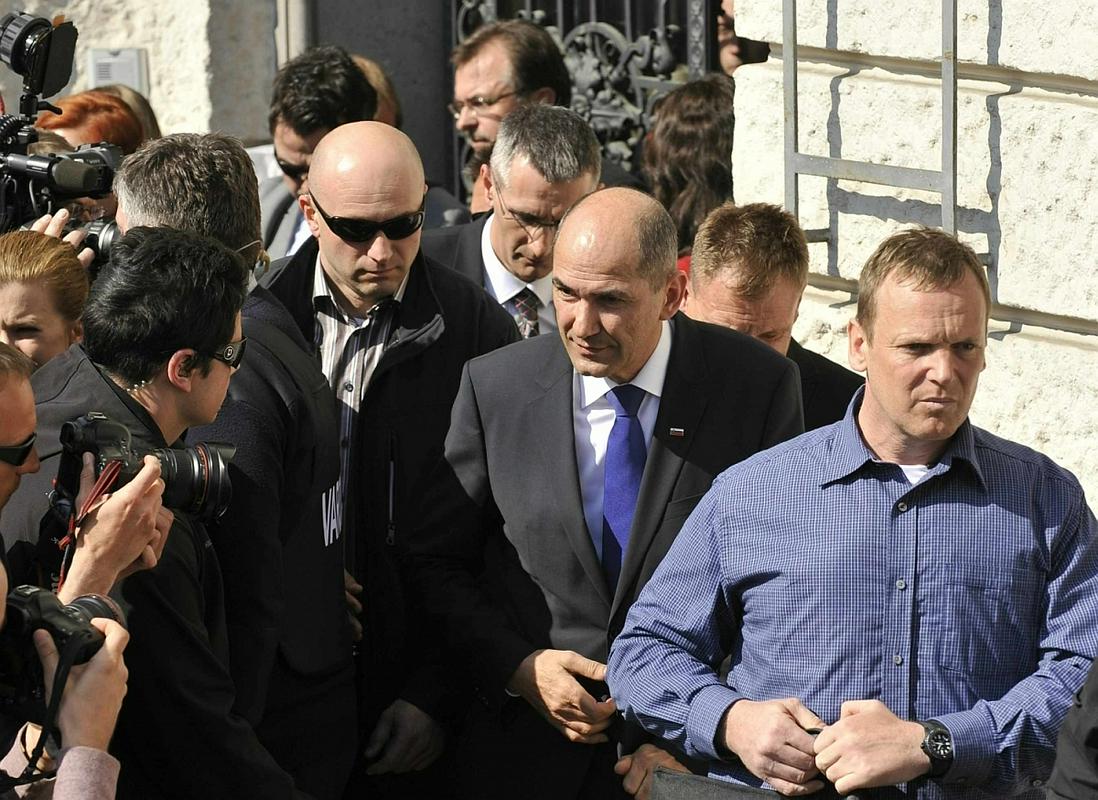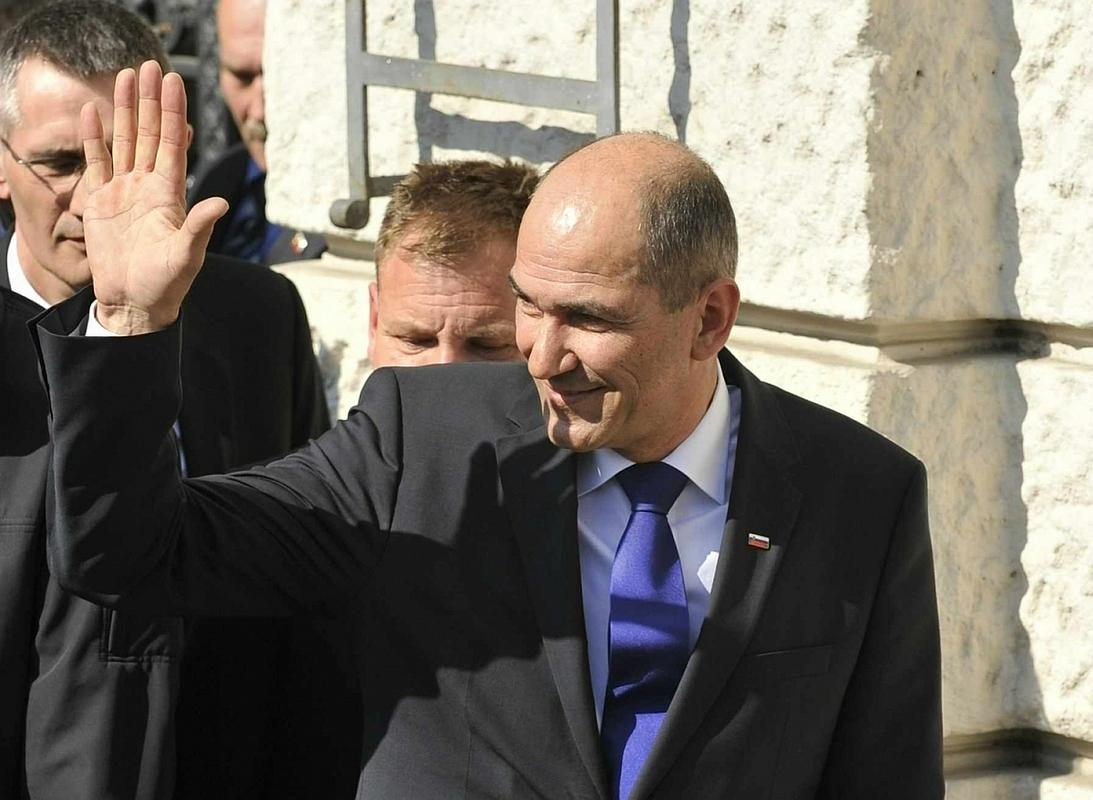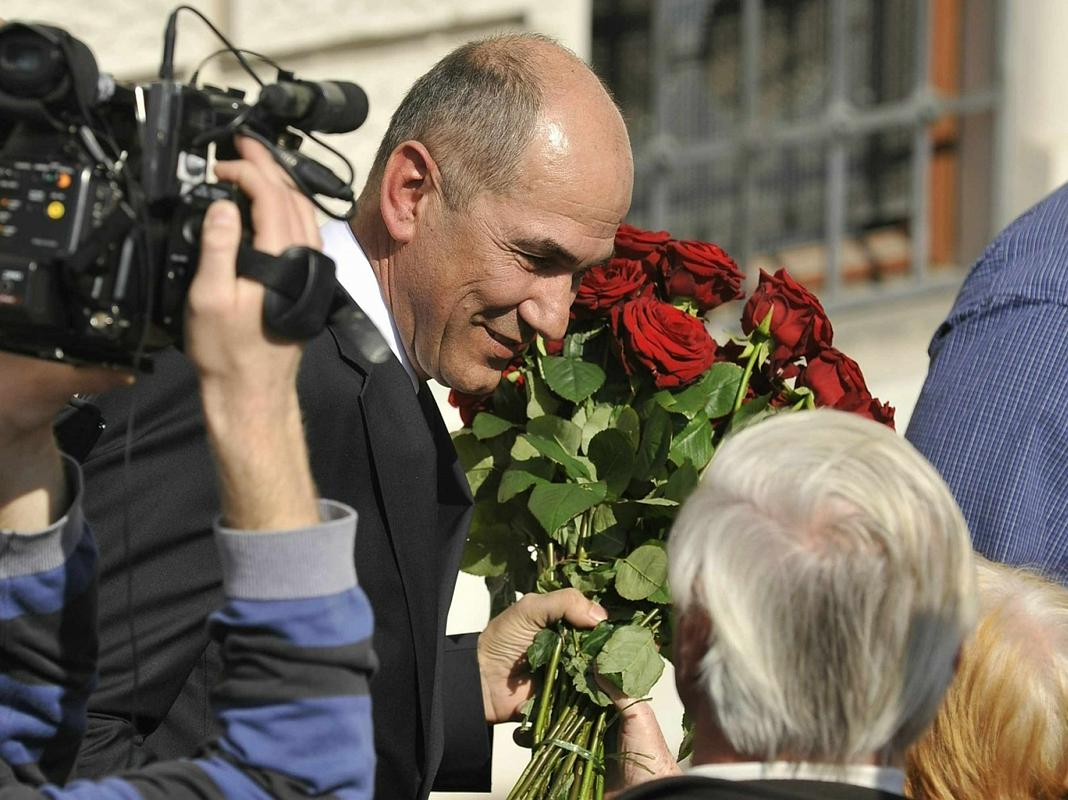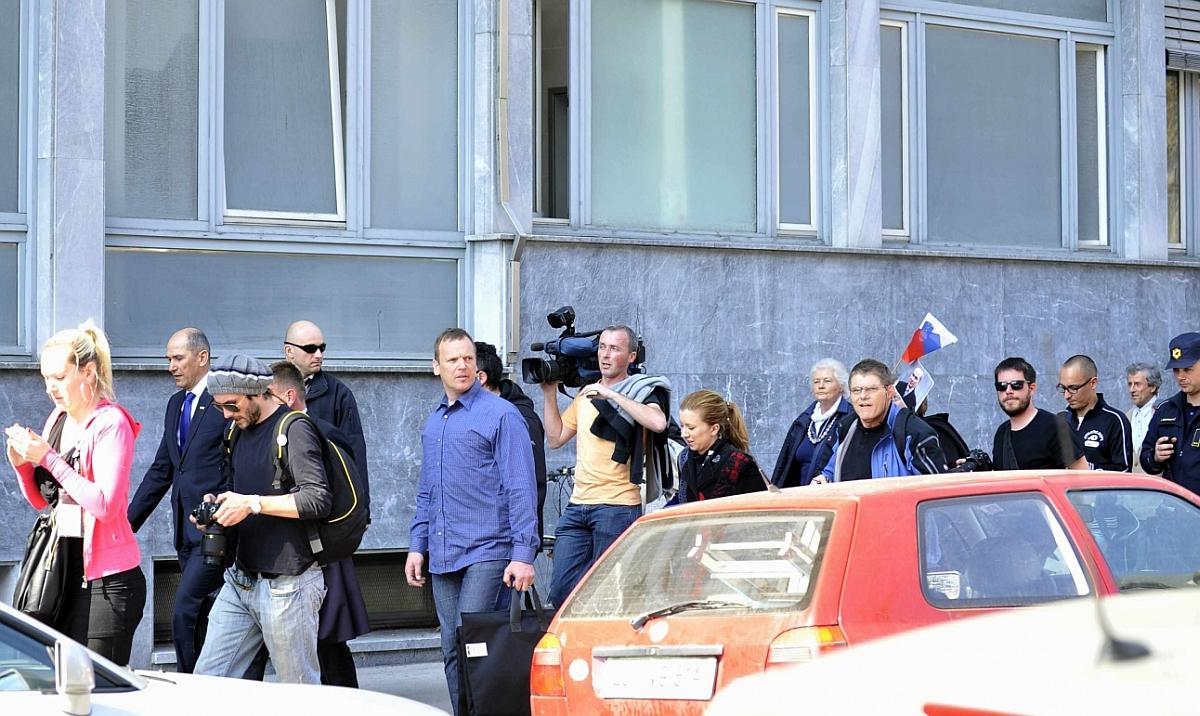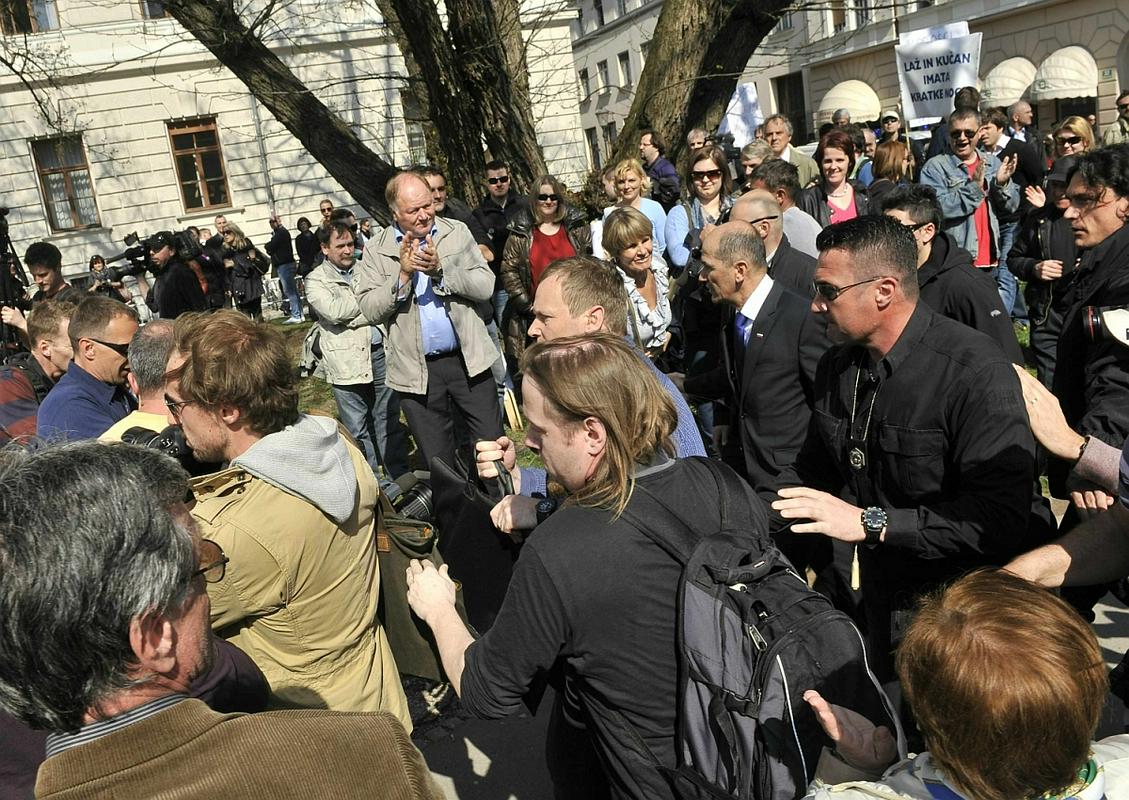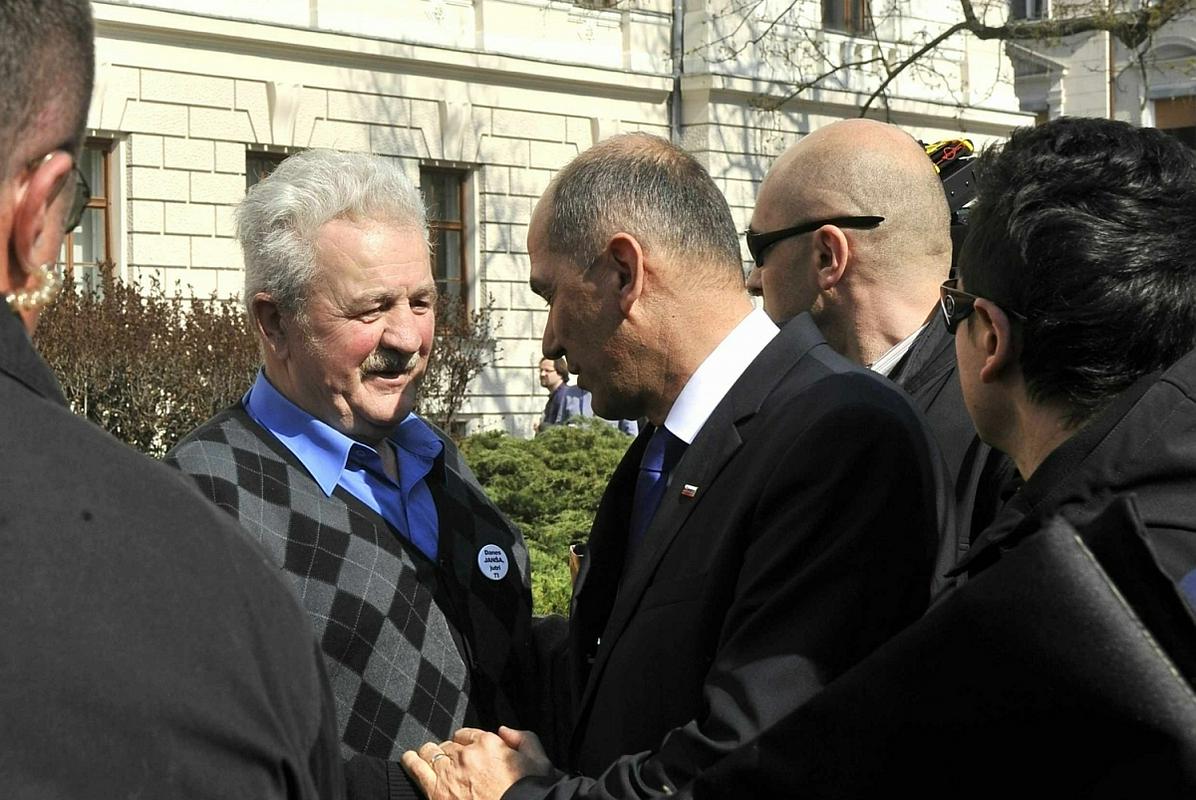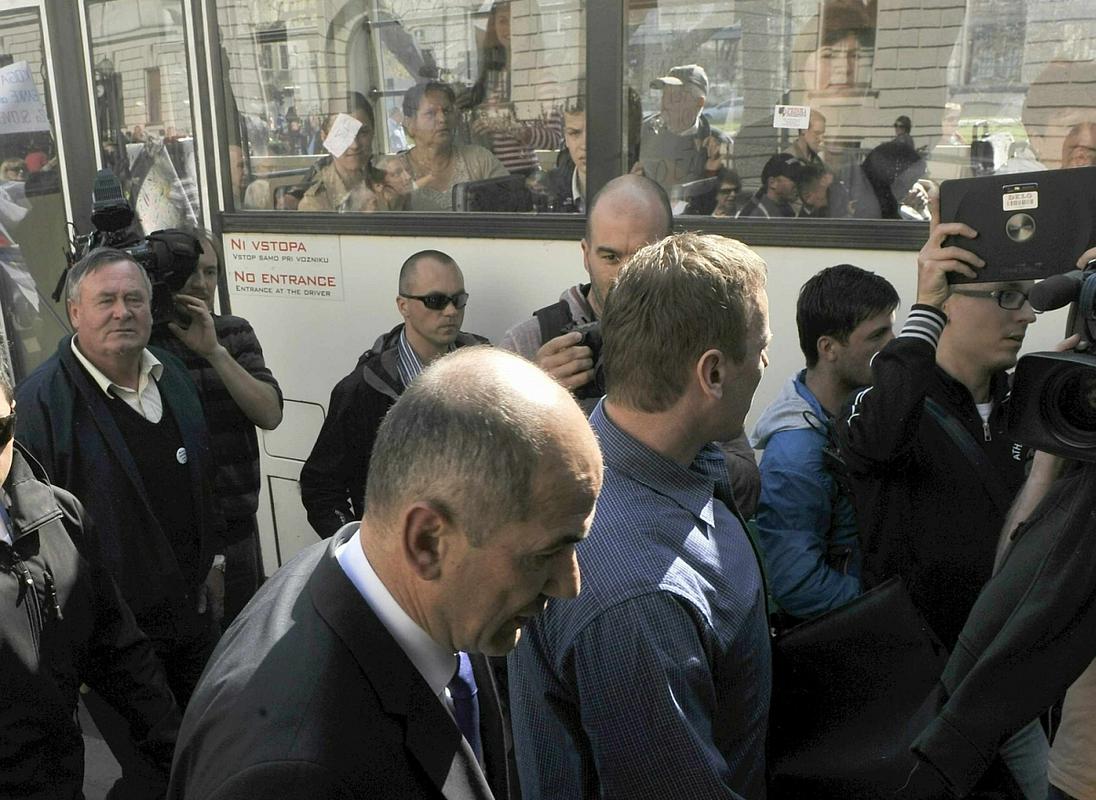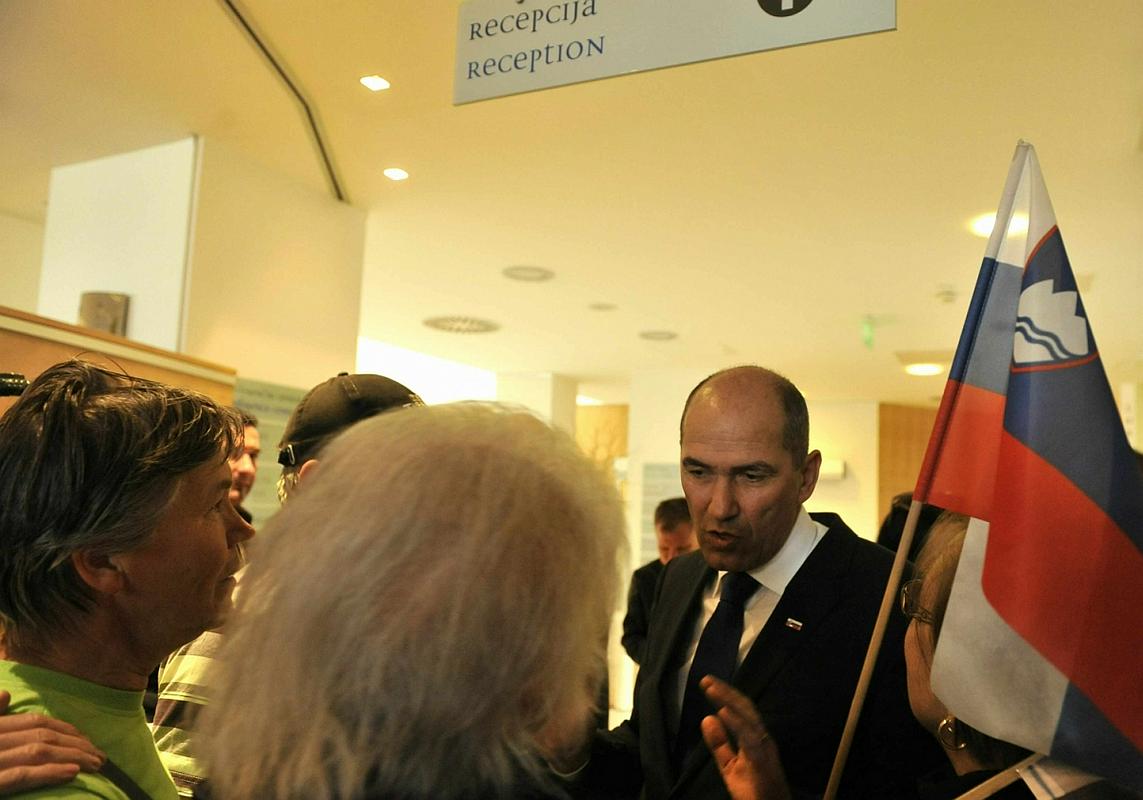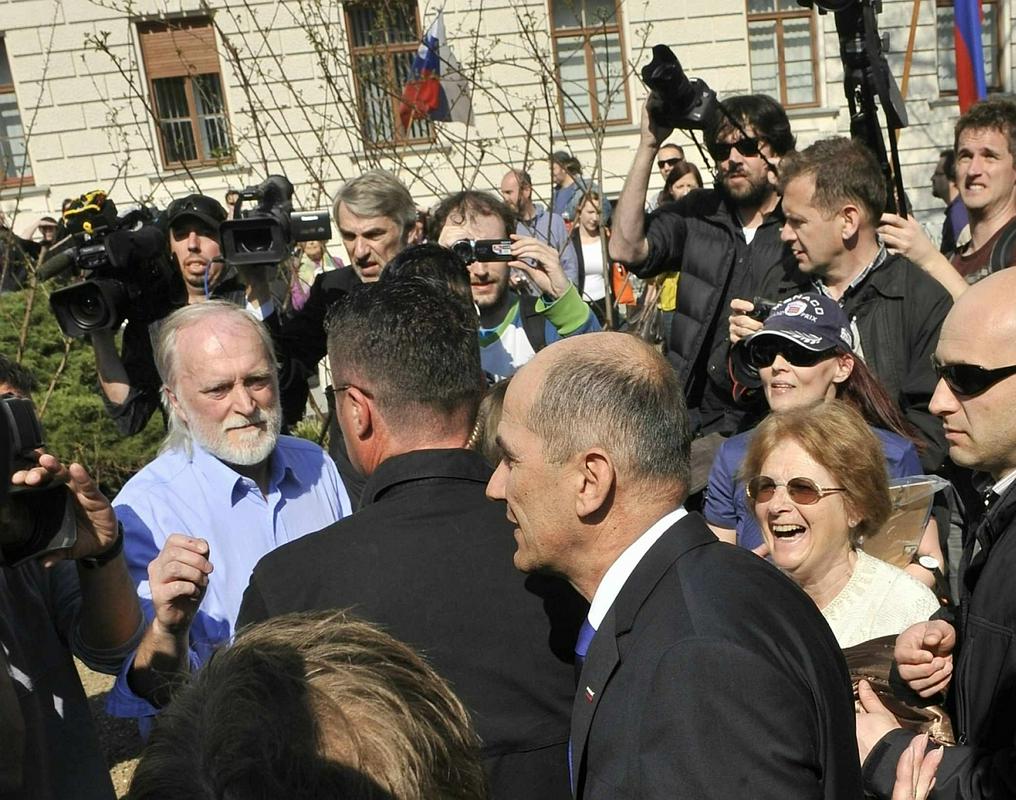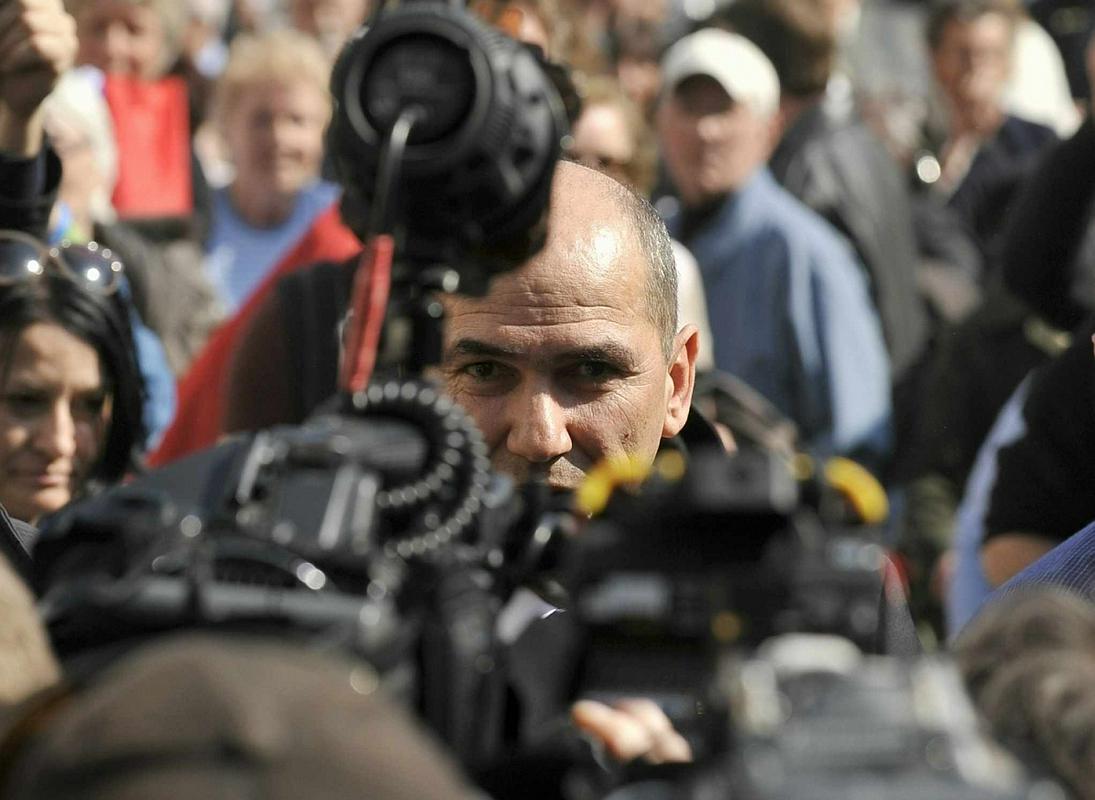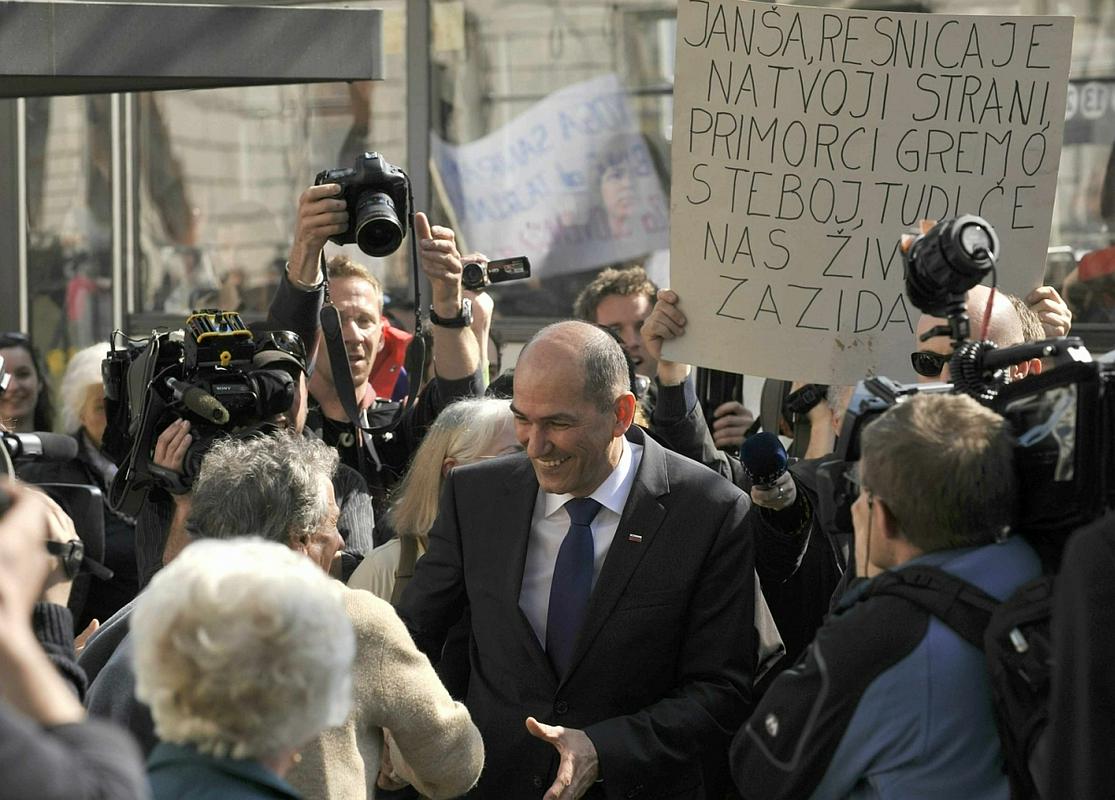
The senate of the High Court in Ljubljana has not yet reached a decision in the Patria case. Once again they listened to the prosecution, and to the convicted persons. Janša claims the trial was politically motivated, while Črnkovič looks forward to at least another month of freedom.
The Patria case continues with a new episode. The president of the SDS party and former Prime Minister Janez Janša and Brigadier Anton Krkovič have been sentenced by the Court of first instance for accepting gifts for illegal intermediation, and Procurator of Rotis Ivan Črnkovič for giving gifts for illegal intermediation in the process of selection and purchase of Finnish eight-wheelers. The three-member senate of the High Court at the open session presented the judgement and the appeal, and listened to the complainants and the prosecution.
The president of the senate Milan Štrukelj at the beginning of the session explained that no judgement would be made on the same day, and that they would try to adhere to the instruction period of 30 days, but that the file with more than 14,000 pages of documentary evidence is extremely comprehensive. Next was the report by the reporting judge Mateja Lužovec, who in two hours explained the decision and the argumentation of the Court of first instance, and to what the defenders of the accused had appealed.
Not only the final judgment, the complainants find disputable also the acquired proofs, especially those acquired in Finland, as they are convinced that the Finnish standards for proofs differ from ours, i.e. for detention of the people being questioned, and at the occasion of house searches. They believe they have the grounds for contesting the judgment also because of the, in their opinion, substantial violations of the provisions of the criminal proceedings, the criminal law, and erroneous and incomplete findings regarding the real situation.
Janša: The judgement is confusing
Janez Janša's attorney Franci Matoz is thus convinced that no direct proof has been introduced proving that his client had committed a criminal act, and in the explanation of the judgment no definition is given that Janša had even accepted the gift.
Janša addressed the court as well. He claims he had quite a lot of troubles reading the judgement, although he had followed the evidence-taking procedure. "In the judgement I found no answer to the questions regarding when, where and how I had received the promise of the gift. The judgement is confusing as far as time is concerned as well." He wanders how somebody could bribe a president of a government by promising an unknown reward. "It is very unlikely the least important clerk could be bribed without being informed of the bribe offered."
According to him in certain communications used as proof it was stated that the president of the government met with Patria representatives in the house of the mayor of Maribor, while all the questioned witnesses during the proceedings denied all the assertions which were ascertainable. He mentioned the length of the entire process: "If that was a fast-track court procedure, than I don't know what the regular looks like. This matter has been in court for five years."
Črnkovič: Think about it before convicting me
The sentenced owner of the Rotis company who represented the Finnish Patria addressed the senate in a very emotional manner. "I have been an entrepreneur my whole life, and when making business one often says things which don't exactly hold water. The court simply refused to understand that"
The formula JZ+TK+stranka (supposedly "party") has been often mentioned in the judgment; the investigators found it in the documents on Črnkovič's computer, and supposedly meant Jože Zagožen, Tone Krkovič and the SDS party. Črnkovič claims that these abbreviations refer to contractors he considered for a job with biomass, although he admits that in the other notes the abbreviations JZ and TK were used for Zagožen and Krkovič. "I have entered a lot of notes in my computer during my working years, so as not to forget something, and to remind myself to keep thinking about it. The investigators found a formula; the meaning of it is irrelevant, as it was meant only for my own deliberation."
"Dear members of the senate, I respectfully ask you to reconsider my sentence well. Your verdict will influence the destiny of 200 people employed in Rotis, who will find themselves in the street the next day. As for myself, I will bear going to prison," he added.
When leaving the court he was pessimistic. "Perhaps it is even better that the judgment isn't known yet. It means another month of freedom for me. Were there any honesty in this building, I would have already been acquitted by the court of first instance." He is concerned about the workers, as in case he is sentenced the contract between the state and Rotis will be annulled, "which for Rotis can mean only one thing - bankruptcy".
Krkovič is the most optimistic
Tone Krkovič said after the public session of the court senate that no new circumstances were introduced, and therefore he expected acquittal. He admitted he had no prior experience with public sessions, therefore he was "positively surprised" with today's process. "We had the opportunity to give additional explanations, our reasons for the appeal, and our defenders had the opportunity to expound," he said.
"The judgment will be closer to the European elections"
Janez Janša was dissatisfied: "The court wouldn't permit us to answer to the absurd statements made by the prosecution." According to him these would belong in the 50s of the previous century, of even to the Goat trial in Višnja Gora. "I am accused of performing a criminal act, because I identified with the acts of Jože Zagožen. The deceased Jože Zagožen of course can't defend himself, but nowhere in the trial document an incriminating statement by Zagožen can be found implicating me in any way. At the same time the insinuation lacks piety to the late Zagožen."
"The judgement pronounced on June 5 of the last year will by all means fall, the only question is on which instance. The court which will annul it either already exists, or will be constituted in future. The damage done by the procedure, however, can never be completely repaired," he continued. The delay of the final judgment is, in his opinion, another proof that the process is politically motivated. "The judgment will be made as close to the European elections as possible. This will be the third time the procedure in the Patria case will take place close to elections," he said.
He thanked his supporters who gathered in front of the court and who recognized the process as politically motivated. He believes that in case he gets sentenced based on such accusations, so can anybody. "Normal citizens are practically powerless in courts where the justice is meted out in such a manner. And I am not the only one feeling this way, the feeling is supported by the last research by Eurobarometer, showing that less than one fourth of people trusts the Slovenian administration of justice, even less than in Romania and Bulgaria. Today the president of the party trusted by more people than the administration of justice was judged."
The court can uphold, or reject the judgment
The prosecution insists on the indictment and suggests the appeals are rejected, and the judgment (two years of prison for Janša, 22 months for Krkovič and Črnkovič, and financial penalty and legal expenses for all) upheld.
The court of second instance can reject the appeal as unfounded, and uphold the judgment of the court of first instance – or annul the judgment and return the case to the court of first instance for a new trial. The higher judges can also change the judgment of first instance. In case of a repeated trial the court would be pressed for time, as in August of the next year the Patria case falls under statute of limitation.
200 protestors in front of the court
In the courtroom the court session was followed by the members of parliament from SDS party Jože Tanko, Eva Irgl, European M.P. Milan Zver, former minister Vasko Simoniti and former president of the National Assembly France Cukjati.
In front of the court building were, among others, other M.P.-s from the SDS party, Branko Grims, Franc Breznik, Vinko Gorenak, Dragutin Mate and Vinko Vasle, as well as the mayor of Grosuplje, also a member of SDS party, Peter Verlič.
Soon after 8 a.m. aproximately 200 protestors gathered in front of the entrance into court. They expressed their support to the sentenced with banners and chants. On the other side of the road a handful of people expressed their conviction that Janša should go to prison. The two groups exchanged some verbal abuse, but the present policemen prevented the passions from flaring out of control.
An enthusiastic crowd waited for Janša in front of the court
After almost five hours Janša finally came out of the court. The leader of the SDS party gave a statement to journalists, and then walked by them towards the hotel where a meeting with his lawyers was scheduled. His supporters hugged him, shook hands with him, gave him flowers – the crowd was so enthusiastic that security guards had to make way for him.




















































